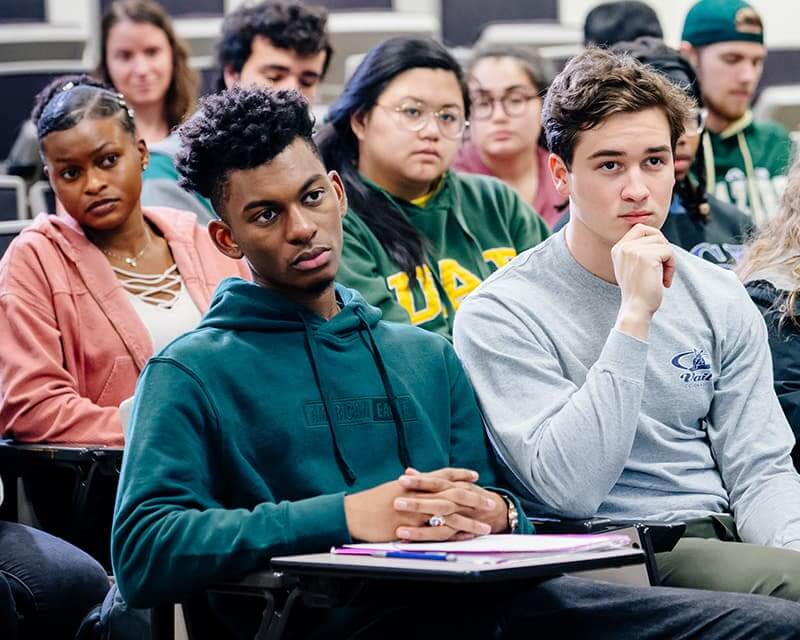
The UAB Department of Sociology offers three minors: Sociology, Medical Sociology, and Social Psychology.
A complete list of requirements and courses for all minors are available in the UAB Undergraduate Catalog opens a new website. Rely on it for the most up-to-date information about minor requirements.
Sociology
A minor in Sociology helps you understand the nature and development of social structures and social issues — knowledge that can be applied to a variety of occupations and careers. Sociology minors learn how to conduct research, analyze data, communicate, and practice critical thinking. You will also learn about different cultures, groups, and societies, and how to analyze their interactions through a global and historical perspective — skills valuable to many employers.
Medical Sociology
This minor focuses on the social causes and consequences of health and illness. It also analyzes health organizations and institutions, the social behavior of health personnel and consumers of health care, and international patterns of health services. Medical Sociology is a particularly relevant minor for students preparing for a career in a health profession such as medicine, nursing, dentistry, or optometry. It will give you a needed background in the linkage between health and society.
Social factors are critical to health. Access to health care and services are influenced by a variety of social, cultural, economic, and political forces. Health practices, knowledge, and disease patterns vary by gender, socioeconomic status, racial and ethnic group membership, and age. In addition, unhealthy lifestyles, high-risk behaviors, and hazardous residential and work environments pose serious threats to health.
Social Psychology
If you have a major but you're still looking for a useful minor to round out your studies, a minor in Social Psychology is a good choice. It supplies a perspective on interpersonal relationships and an understanding of how people’s behaviors and thoughts influence, and are influenced by, the actions of others. It teaches you skills — research, analysis, writing, and oral communication — that you will use throughout your life.